Madagascar
Madagascar's incumbent president Andry Rajoelina cast his ballot for the presidential election on Thursday (Nov. 16).
He is one of 13 candidates vying for the top post, but 10 of the others have called on voters to shun the elections, complaining of an "institutional coup" in favour of Rajoelina.
Eleven million people are registered to vote in a country of about 30 million.
"Preventing citizens from voting is against the law. That's why I'm setting an example as a statesman, not just as a politician, to encourage the population to vote, and that's why I'm so happy today to see all the citizens of the population come out in numbers to vote all over the island, all over Madagascar," Rajoelina said.
First lady Mialy Rajoelina and the first son voted at the same Antananarivo polling station.
The Indian Ocean Island nation has been in turmoil since June after media reports revealed the president had acquired French citizenship in 2014.
Under local law, the president should have lost his Madagascan nationality, and with it, the ability to lead the country, his opponents said.
Rajoelina has denied trying to conceal his naturalisation, saying he became French to allow his children to pursue their studies abroad.
His challengers were further enraged by another ruling allowing for an ally of the president to take over the reins of the nation on an interim basis after Rajoelina resigned in line with the constitution to run for re-election.
Opposition groups have led near daily protests since ealy October and complained about electoral irregularities.
On Wednesday (Nov. 15), authorities imposed a nighttime curfew in the capital Antananarivo, following what the police said were "various acts of sabotage".
"You know, there are always people trying to stir up trouble and prevent elections in Madagascar. But I thank the wisdom of the people."
Voter turnout will be key in this election. Polling stations will close at 2 PM GMT.
Rajoelina said he was confident in the choice of the Malagasy people. A run-off election is scheduled on December 20 but it remains unclear if it will be necessary.
The Southern African Development Community (SADC), a regional bloc, as well as the African Union and the European Union, have sent observer missions to monitor the vote.
Rajoelina first took power in 2009 on the back of a coup, then, made a winning comeback in 2018.
Poverty and anger
Less than 55 percent of those registered showed up for the first round of voting at the last elections in 2018.
At a newsstand on Wednesday (Nov. 15), some residents looked concerned as they scanned through newspaper headlines.
"People have become aware of the dictatorship we live under," said Chrishani Andrianono, 55, complaining that after 11 years in power, Rajoelina had little to show for it.
"We do not see what he did for us."
For many in the country, politics take a back seat to making ends meet.
"In the morning, I don't eat -- only a little at lunchtime and in the evening. Otherwise I can't get by, I don't have enough," 41-year-old Josiane Rasomalala told AFP on Thursday.
"I'm voting because we need a better life."
Vonjisoa, a 34-year-old, opposition-leaning Antananarivo resident, said some in his neighbourhood had been promised money to go and vote.
"They want to buy us," he said with a grimace. "I will follow the instructions and I will not vote."




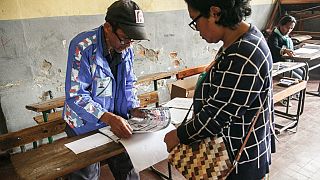
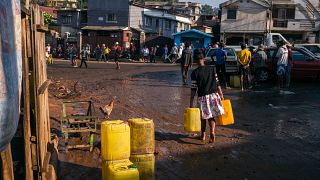
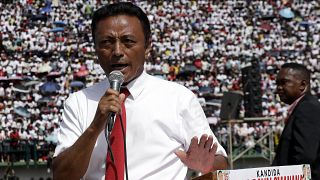
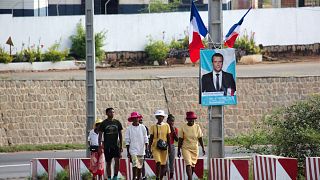
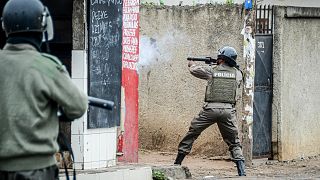
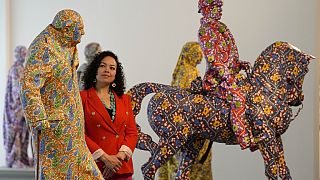



01:02
Madgascar's President in Paris to discuss disputed Indian Ocean islets
Go to video
Togo suspends French state-owned broadcasters RFI and France 24
Go to video
Protesters gather in Ivory Coast, demand Thiam's return on electoral list
02:13
Cameroon: Police, opposition supporters clash as election looms
01:25
Burundi awaits results of local and parliamentary elections
01:00
Ivory Coast: opposition candidates barred from electoral lists